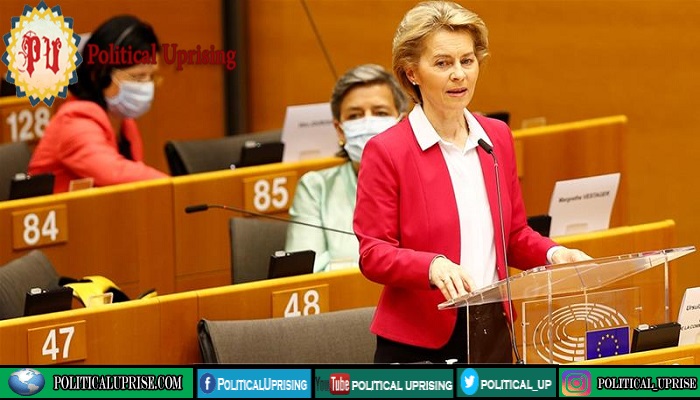European Union coronavirus relief package seeks to avoid a further splintering of economic growth and wealth levels among EU’s 27 member states.
The European Commission released details of a coronavirus economic relief package for member countries. Worth 750 billion euros ($825bn), the blueprint envisions borrowing the funds and disbursing them as grants and loans to member states, with the lion’s share of aid some 313 billion euros ($344bn) earmarked for Italy and Spain, the European Union member states worst affected by the pandemic.
The goal of the plan is to lift the EU’s 27 member states out of what is widely believed to be the bloc’s deepest-ever recession, which has been spawned by coronavirus lockdowns, and to protect the EU’s single market of 450 million people from being splintered by divergent economic recovery and wealth levels.
Of the 750 billion euros, two-thirds would be in grants financed by joint borrowing and one-third in loans.
Online sex abuse rises in EU with during lockdowns
The grants, although controversial, are needed because Italy, Spain, Greece, France and Portugal already have high debt burdens and are heavily reliant on tourism a sector that ground to a screeching halt as COVID-19 marched across the EU.
These countries will find it more difficult than more frugal northern nations to restart their economies through borrowing.
The recovery fund package is in addition to the EU’s long-term budget for 2021-27, which the European Commission will propose being set at 1.100 trillion euros ($1.121 trillion) virtually the same as the proposal of 1.095 trillion ($1.205 trillion) discussed by leaders in February.
“In total, this European Recovery Plan will put 1.85 trillion euros to help kick-start our economy and ensure Europe bounces forward,” the EU executive said in a document titled “Europe’s moment Repair and prepare for the next generation”.
The 500 billion euros in grants reflects the wishes of the EU’s two biggest economies, France and Germany.But some nations would rather see the recovery package comprised of only loans, signalling that the package could set the stage for more political infighting among the bloc’s members.
EU and Britain demands both side give ground in trade talks
The funds that are borrowed will have to be repaid, meaning that higher national contributions to the EU budget will be necessary in the future or new taxes assigned to the EU.
The commission proposed new revenues in the form of a tax on plastics, some money from the CO2 emissions trading scheme, a digital services tax, a part of national corporate taxes and an import levy on goods produced in countries with lower CO2 emissions standards than the EU.
It also proposed the EU budget should get a bigger share of the value-added tax paid by governments to the EU.



